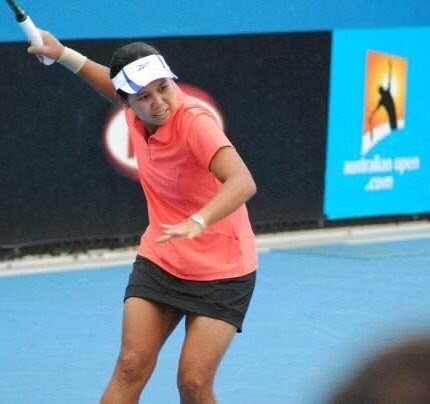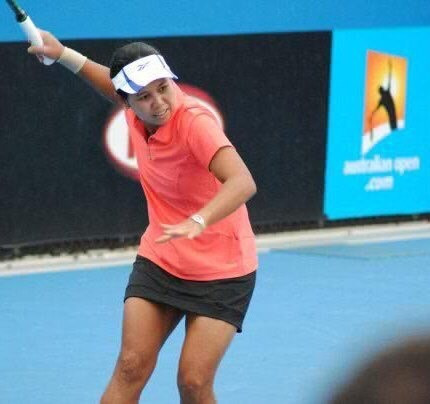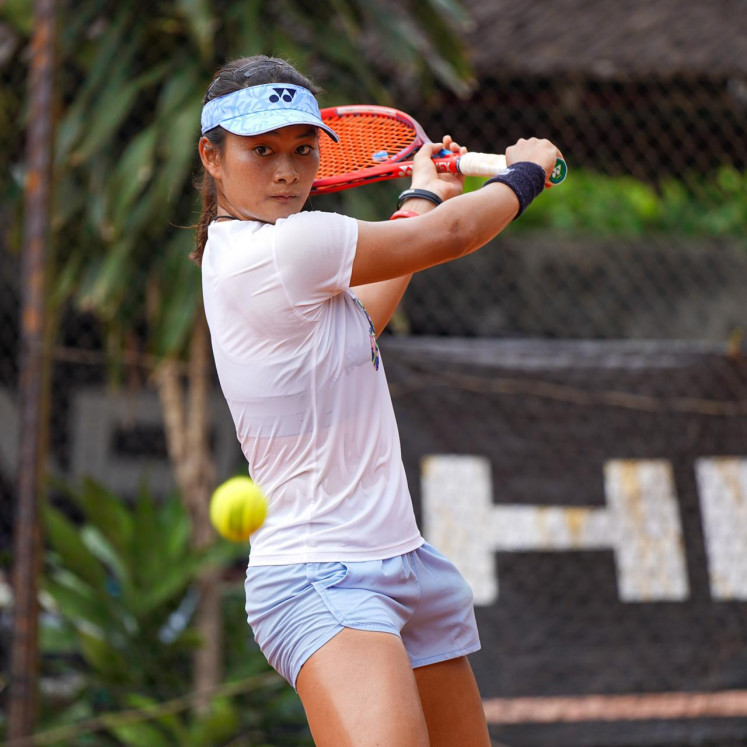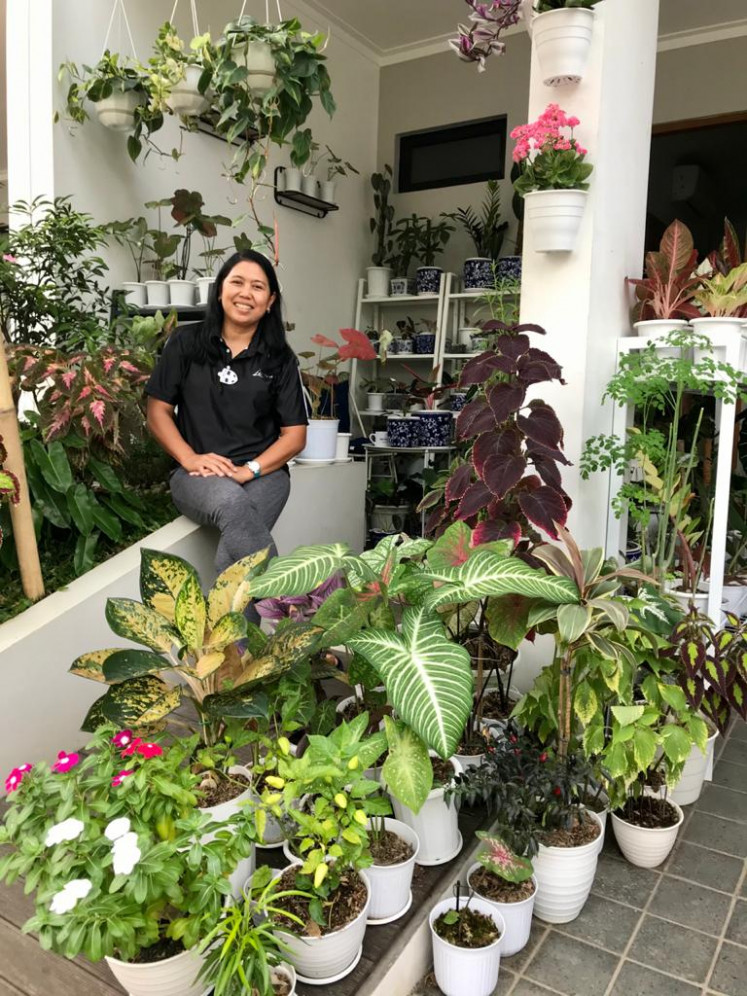Popular Reads
Top Results
Can't find what you're looking for?
View all search resultsPopular Reads
Top Results
Can't find what you're looking for?
View all search resultsIndonesian Icons: Tennis legend Yayuk Basuki
In this edition of Indonesian Icons, we focus on Yayuk Basuki, who burst onto the world tennis scene in the 1990s and became an Indonesian sporting legend.
Change text size
Gift Premium Articles
to Anyone
A
sk any Indonesian: Who is Yayuk Basuki? Most likely you will get the answer: the tennis player. Not just a tennis player, but the tennis player. Even Indonesians who do not particularly follow the sport are familiar with her, especially if they grew up in the 1990s.
When Yayuk was still active in the sport, she was regularly mentioned in newspapers, on radio stations and Dunia Dalam Berita (The World in News), the daily news program of state-owned television network TVRI. She was often mentioned in school textbooks as well.
With her free-flowing movement, powerful swinging forehand and beautiful one-handed backhand (a rarity in today’s tennis, especially in the women’s tour), Yayuk was a force to be reckoned with among her peers. While Yayuk is relatively small in stature (164 centimeters), she was equipped with a strong serve that could give anyone a run for their money.
Indeed, she beat players taller and stronger than her, such as top-ranked Lindsay Davenport (189 cm) and Mary Pierce (178 cm).
At the peak of her career in 1997, Yayuk reached a career-high of number 19th in the world, the highest for any Indonesian player, man or woman. In the same year, she reached the quarterfinals at the prestigious Wimbledon. She was even more prominent in the doubles category, reaching a career-high of number nine in the world.
Indonesians are more familiar with the other racket sport, badminton, which saw the national flag flown high as the team won gold medals in several editions of the Summer Olympics. In her biography, Yayuk wrote that she did play badminton as a child, even winning a school-level tournament.
So, how did she end up playing tennis — which is less popular than badminton and still considered a sport for the privileged by many — and becoming a legend in her own right?
The unlikely tennis family
Born on Nov. 30, 1970, in Yogyakarta, Yayuk is the youngest child of Budi Basuki and Sutini. Yayuk’s father was a police officer who was talented in many sports, including tennis. His talent made him popular among his colleagues who loved the sport, especially high-ranked officers.
With such connections, it was not difficult for Budi to introduce tennis to his wife, Sutini, and his five children: Atiek, Mamiek, Sigit, Singgih and Yayuk. Equipment such as rackets and access to the courts was never a problem for the Basukis, who became known as the tennis family.
But still, all this access would mean nothing without the determination to succeed. Yayuk recalled in her biography that even then her father noticed something different in his youngest child. Unlike her siblings who sometimes needed to be persuaded to even step onto the court, Yayuk, who began playing at the age of 7, was the one who kept asking when her next practice would be.
Hard-hitting: Yayuk Basuki in action at the 2010 Australian Open, partnered with Japan's Kimiko Date. (Instagram/Courtesy of Yayuk Basuki)It was her mother, Sutini, who encouraged Yayuk to hit her forehand flat — a style that would later become her signature shot.
Yayuk became so good that at one point, she managed to beat her older sister, Mamiek, in three sets at a tournament in Yogyakarta. Mamiek at the time was already enrolled in the Ragunan School for Athletes.
Nationals
Budi at one point wanted to send Yayuk and her brother, Singgih, to a tennis academy, only to be turned down by the head coach because they were not keturunan (Chinese-Indonesian).
The book revealed that the coach at the time took one look at Budi’s children and deemed them untalented. It was believed that the coach preferred to train children from Chinese-Indonesian families because he thought they had more funds for tennis training.
That did not stop Yayuk. A local City Council member who was familiar with the Basuki family managed to convince the Yogyakarta Tennis Federation to allow Yayuk, who was not even 11 years old at the time, to enter the selection process for the National Games (PON).
Sure enough, all the players who entered the process became the victims of Yayuk’s forehand. Most were students of the coach who had turned Yayuk down. It was poetic justice.
Despite jeers from the Jakarta crowd (“Do they not have other players in Yogyakarta? What is this child doing here?”), Yayuk qualified for the National Games. She managed to push the top-ranked player at the time, Yolanda Soemarno, into three sets. Though she lost, this match led her to meet Mien Gondowidjojo, a celebrated tennis coach.
Young talent: Priska Madelyn Nugroho, 17, idolizes Yayuk Basuki and wants to follow in her footsteps. (Personal collection/Courtesy of Priska Madelyn Nugroho)Under Mien’s tutelage, Yayuk became an even better tennis player, especially in doubles. She won gold at the Asian Games with Suzanna Anggarkusuma in 1986 in Seoul and again four years later in Beijing. Yayuk also won a gold medal with Suharyadi in the mixed doubles tournament.
Suharyadi would later become Yayuk’s coach and eventually her husband in 1994.
Read also: Indonesian Icons: Inul Daratista: The birth of the drilling dance
Rise to prominence
Yayuk’s career in the women’s tour started relatively late. She was already 20 years old when she finally turned professional in 1990.
She made up for lost time by securing victories almost immediately, including winning a WTA tour singles title in Pattaya, Thailand, in 1991. Yayuk became the first Indonesian player to win a major professional event. She later became a top-50 mainstay for the rest of the 1990s and ended her career with six WTA singles titles.
She was outspoken about her differing views with the Tennis Association of Indonesia (Pelti). In 1997, she opted not to join the Southeast Asian (SEA) Games to give space to her juniors even when the Indonesian tennis body wanted her to play for the Southeast Asia level.
During her career, she was known to be one of the friendliest women on the tour, winning the Karen Krantzcke Sportsmanship award twice in 1996 and 1998
Later years
In the 1998 Asian Games in Bangkok, Yayuk defeated Tamarine Tanasugarn 6-4, 6-2 and won the singles gold medal. She beat Tamarine amid jeers from the local crowd who wanted their idol to win. Yayuk became only the second Indonesian woman to win a gold medal at the event since Lita Sugiarto in 1974.
Yayuk initially retired after the 1999 Australian Open and became pregnant. She returned two times: once in 2000 to support the Indonesian tennis team for the Sydney Olympics and one final time in 2008, exclusively in doubles, because she wanted to enjoy the game.
She retired for the final time in 2013 and pursued a career as a politician. Known as an outspoken member of the House of Representatives Commission X overseeing sports who was vocal about the betterment of the life of local athletes, Yayuk was not reelected in 2019.
Who’s next?
Yayuk shared with The Jakarta Post about who she thinks could be her successor.
Romana Tedjakusuma did reach a career-high rank of 82 in 1994, but she did not continue her career. Later, Wynne Prakusya ranked 74 in 2002.
Yayuk conceded that her greatest hope was Angelique Widjaja, who peaked at 55 in 2003, won Wimbledon’s girls’ title in 2001 by beating future-number-one Dinara Safina and won a singles title in Bali.
That plant life: Yayuk Basuki now enjoys a quiet life tending to plants, pictures of which she often uploads to her Instagram account. (Personal collection/Courtesy of Yayuk Basuki)These names would retire one by one, mostly due to injuries, burnout or lack of motivation.
Yayuk said she was sad knowing that no one had been able to follow in her footsteps so far. She shared her hope for Indonesia’s up-and-coming tennis players to be resilient — the way she was when she stepped into her career.
“Don’t wait for the government to help you,” she said.
Wynne considers Yayuk her role model and idol, while Aldila Sutjiadi, the current Indonesian number one with a career-high rank of 347, said she hoped to one day achieve as much as Yayuk.
“Unfortunately, when she was at the peak of her career, I was too young to remember her playing style. But I want to be just like her and bring Indonesia’s name to the world,” said Aldila, who is 26.
Seventeen-year-old Priska Madelyn Nugroho, who won the girls’ doubles title at the 2020 Australian Open with Alexandra Eala from the Philippines, said that until now, nobody could replace Yayuk.
“She’s my motivation in pursuing a career in tennis,” she said.
Keeping the flame going: Aldila Sutjiadi, 26, sees Yayuk Basuki as a tennis icon. (Personal collection/Courtesy of Aldila Sutjiadi)Now, Yayuk enjoys a quiet life with her husband and her son, Yarynara Sebrio Suharyadi. She sometimes plays tennis “just for fun” with her colleagues.
She also enjoys watching Netflix shows such as House of Cards and tending to her plants, pictures of which she often uploads on her Instagram account.
Of her outspoken and candid nature, she said: “By being honest and true to ourselves, we won’t be rich […] But at the same time, we also won’t feel burdened.”















